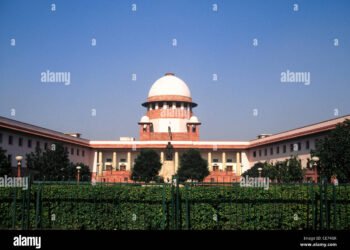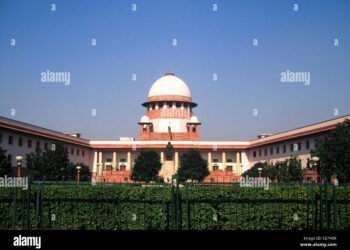The Supreme Court stated today that blocking seats during counselling for postgraduate medical courses negatively impacts higher-ranked candidates and undermines merit-based selection, providing several directives to eliminate this practice in admissions following NEET-PG, the nationwide exam for postgraduate course entry.
Seat-blocking is a widespread tactic in competitive examinations. Candidates enroll in programs at various institutions as a backup strategy. Subsequently, they select their most preferred option and leave the remaining seats empty. These seats are then available, but by that time most candidates have already enrolled elsewhere. Thus, applicants significantly lower on the merit list have an opportunity at these positions.
The panel of Justice JB Pardiwala and Justice R Mahadevan stated that seat-blocking is not just a standalone misconduct, but indicates broader systemic issues.
‘Fosters inequity among candidates’
The court stated that this misconduct skews the true availability of seats, promotes unfairness among candidates, and frequently turns the process into one driven more by luck than by merit. It stated that systemic issues stemming from “fragmented governance, lack of transparency, and weak policy enforcement” were to blame for this.
“Seat blocking in NEET-PG counselling occurs when candidates temporarily accept seats, only to abandon them later after securing more preferred options. This leads to those seats remaining unavailable in earlier rounds and opening up only in later stages, disadvantaging higher-ranked aspirants, who may have already committed to less preferred choices,” the court said.
ALSO READ: ‘ED crossing all limits’: Supreme Court halts probe into Tasmac liquor scam
Bench issued directions to prevent seat-blocking
The bench issued multiple directions to the authorities to prevent seat-blocking. These instructions entail: (i) establishing a Nationally synchronized counselling calendar to synchronize AIQ (All India Quota) and State rounds, thereby preventing seat blocking across systems (ii) requiring Pre-Counselling Fee Disclosure from all private/deemed universities, outlining tuition, hostel, caution deposit, and additional charges (iii) creating a Centralized Fee Regulation Framework under the National Medical Commission (iv) allowing upgrade windows after round 2 for admitted candidates to transition to superior seats without reopening counselling to new applicants and (v) disclosing raw scores, answer keys, and normalization formulas for transparency in multi-shift NEET-PG examinations.
The additional directions include: (vi) impose stringent penalties for seat blocking such as loss of security deposit, bans on future NEET-PG exams for repeat offenders, and blacklisting of involved colleges; (vii) use Aadhaar-based seat tracking to stop multiple seat holding and misrepresentation; (viii) hold state authorities and institutional DMEs accountable through contempt or disciplinary measures for violations of rules or schedules; (ix) establish a Uniform Counselling Conduct Code across all States for consistent regulations on eligibility, mop-up rounds, seat withdrawals, and grievance timelines; and (x) create a third-party oversight mechanism under the NMC for yearly audits of counselling data, compliance, and fairness in admissions.
ALSO READ: 2 Israel Embassy staff shot dead in US; Trump denounces the attack
Previously, NEET-PG candidates from the 2017-2018 academic year had reached out to the Allahabad High Court with their complaints, which included the issue of seat-blocking. The High Court determined that candidates with lower ranks were permitted to join the mop-up counselling rounds even after being assigned seats, which adversely affected higher-ranked candidates.
The supreme court granted Rs 10 lakh as compensation to each petitioner and instructed the authorities to implement reforms. The State of Uttar Pradesh and the Director General of Medical Education and Training appealed the ruling in the Supreme Court, which suspended it in 2018. In its ruling today, the court adjusted the compensation to Rs 1 lakh per individual. It recognized the policy enhancements made in 2021 and encouraged officials to follow the guidelines.














